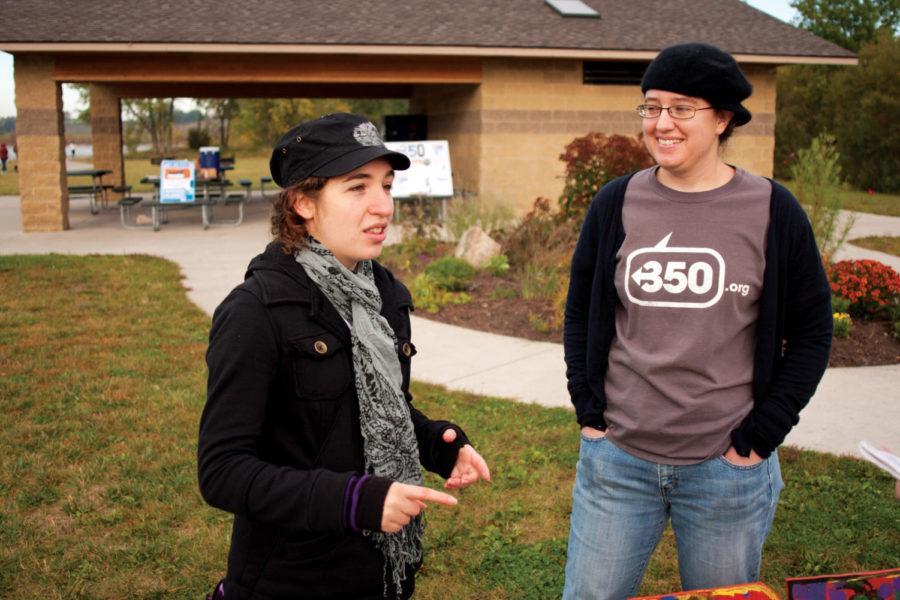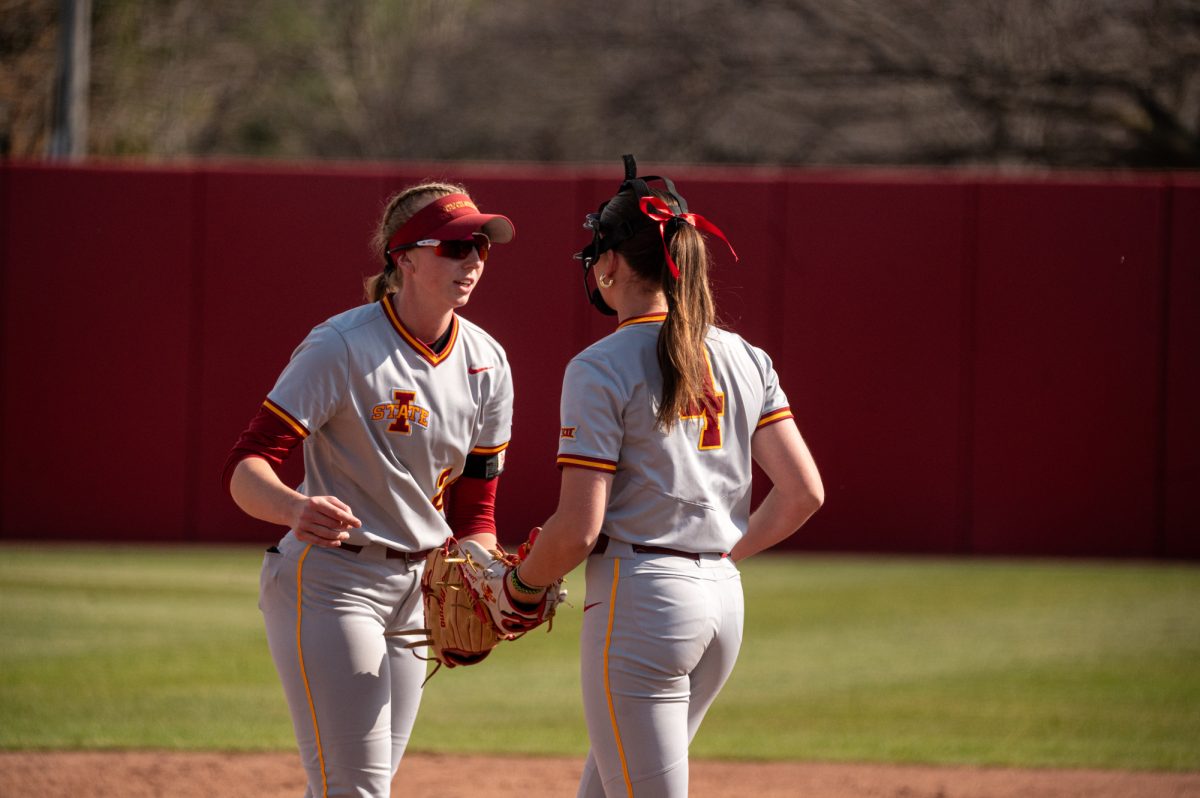350 Event: Students and Community Collaborate to Fight CO2 Emissions
September 28, 2011
On Saturday Sept. 24, a small group of people gathered at Ada Hayden Park at 9 a.m. The park, named for an ISU graduate who was dedicated to prairie preservation, seemed an appropriate meeting place for this event. But this group was rallying for a different kind of preservation: the preservation of our planet.
This event, also known as Moving Planet, takes place on this date every year in over 175 different countries around the world. What is the purpose of these gatherings? According to Activus vice-president Rivka Fidel, an Iowa State graduate student in soil science, the goal is to cease the use of fossil fuels and reduce the amount CO2 in the air. Also, the participants in Moving Planet hope to bring this issue to the attention of our politicians. “The more the 350 events happening around the world, the more we convince politicians that this is what people want and what we need”. Fidel explains that it is important for politicians to know that the public does take plans for sustainability into consideration when voting, and it is essential that they make strides in improving the quality of the air.
Activus, a student group on campus that focuses on environmental and social justice, urges students to get more involved in social issues. So, naturally, they joined the local 350 chapter and community members that morning at the park. Around 15 people, and 2 dogs, participated in the walk around Ada Hayden Park. Although it was a small group, community member Ellen Johnsen describes them as “one more voice in a choir”. The walk took place from 9 to 11 a.m. on Saturday morning, so participants could walk at their own pace and enjoy the crisp morning air. When they were finished they had the opportunity to write a letter to a politician, another way to communicate about the urgency of the situation.
According to 350, the organization responsible for Moving Planet, the safe upper limit for the amount of CO2 in the air is 350 parts per million (ppm). The current amount of CO2 has been measured at 391 ppm. Eventually, this number will reach the point where damage is irreversible. But, Fidel explains, that the number can still be brought back to the safer level if the proper actions are taken. In order to accomplish this task, fossils fuels must be reduced in favor of renewable energy sources, sustainable agriculture techniques should be used more frequently, homes need to take precautions to use less energy and, finally, a community must practice the three Rs — reduce, reuse and recycle.
Sept. 24 is a day when people gather all over the world to speak out against fossils fuels to better the condition of our planet, but you can make an effort to do your part everyday. Check out the side bar for recycling efforts that you can do for your campus and community!






